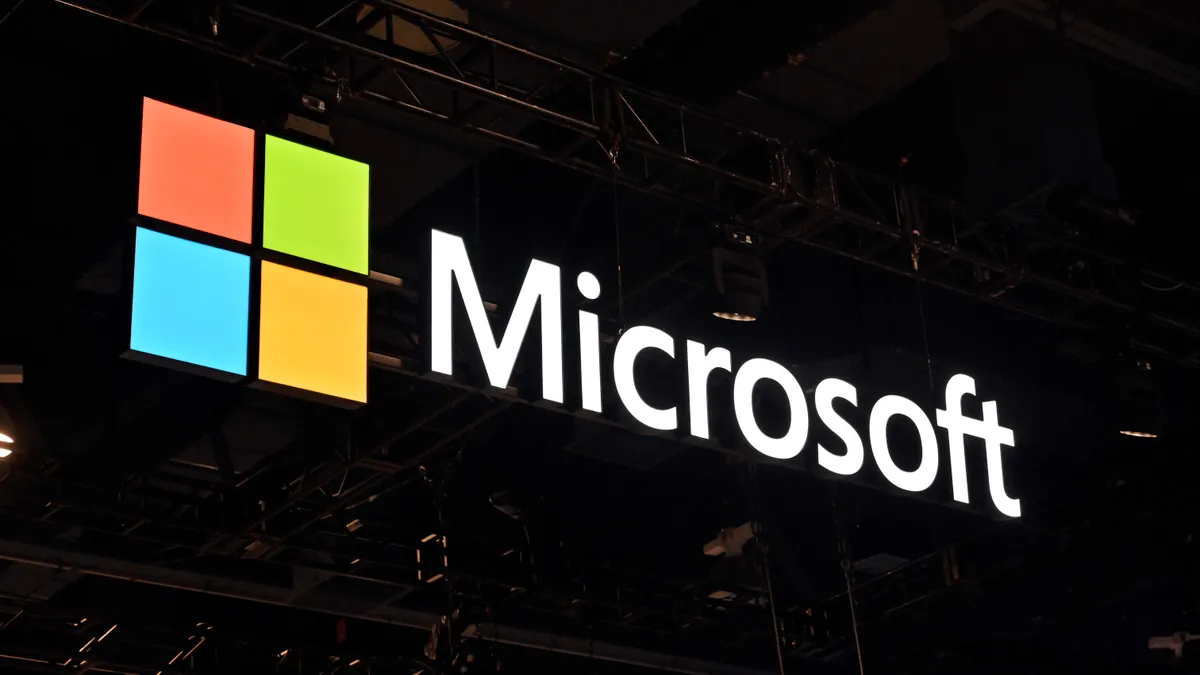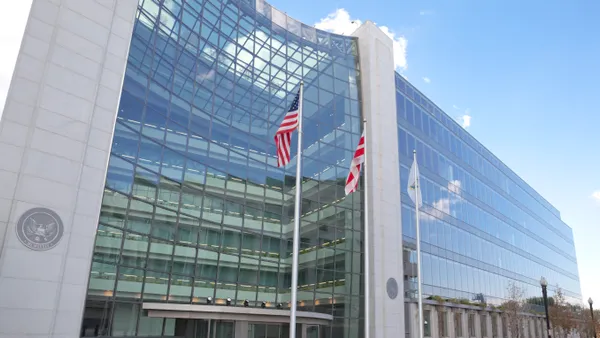Dive Brief:
- Microsoft has launched a decarbonization team focused on reducing emissions from its supply chain, a move that builds on the tech giant’s sustainability strategy and sustainable solutions suite.
- Microsoft’s director of sustainability overseeing cloud operations and innovation, Charlie Sellars, announced the news in a LinkedIn post earlier this week. The three-member team will help Microsoft tackle scope 3 emissions generated by purchased goods and services, as well as those produced by its cloud and artificial intelligence operations, per Sellars.
- The three appointees include an in-house Microsoft veteran Tim Hopper, who has worked at the company for over two decades, along with Google’s former senior manager for cloud services sustainability Ray Waweru and Meta’s former net-zero lead Sofia Khan, according to the post.
Dive Insight:
Hopper previously served as Microsoft’s cloud supply chain sustainability manager, a role he took on after working as the computer software provider’s responsible sourcing manager. The responsible sourcing role involved managing a global responsible sourcing and ESG program for Microsoft’s procurement and supply chain network, according to Hopper’sLinkedIn.
Waweru’s time at Google included serving as the search engine company’s sustainable procurement lead, and he worked as sustainable sourcing and ESG reporting manager at workspace solutions company WeWork before that. Waweru also has experience as a supply chain analyst at the World Wildlife Fund.
Khan comes to Microsoft after almost four years as Meta’s net-zero lead, a position she took on after working as a sustainability manager at Quantis, a Boston Consulting Group owned environmental sustainability consultancy that guides companies on their sustainability journey.
The creation of the decarbonization team falls in line with Microsoft’s goal to become carbon negative by 2030 and joins a spate of recent initiatives the company has undertaken to mitigate its carbon footprint and work toward its sustainability targets. Among its goals, the company aims to slash over half of its own emissions — both direct and supply chain emissions — by the end of the decade.
This year alone, Microsoft’s actions include expanding its sustainability suite with an ESG reporting tool and signing a landmark carbon removal contract with Stockholm Exergi, a 6-year offtake agreement with Catona Climate and a renewable energy credits purchase agreement with Recurrent Energy.
Despite making headwinds in its sustainability strategy, Microsoft’s chief sustainability officer Melanie Nakagawa and vice chair and president Brad Smith noted in its latest sustainability report that scope 3 or indirect emissions are an area where the company is “not yet on track” but is working to “identify and pursue additional breakthroughs.”
Microsoft’s scope 3 emissions — which account for 96% of the company’s total emissions — increased to 16,624,000 metric tons of carbon dioxide equivalent in 2023, up by over 3% from 2022, according to the report.












